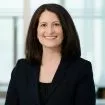- with readers working within the Banking & Credit industries
- within Finance and Banking topic(s)
In response to the effects of the COVID-19 pandemic, the cities of Los Angeles and San Francisco have issued new requirements and guidance with respect to employee paid sick leave. San Francisco has also canceled certain employer reporting requirements relating to the city's Health Care Security Ordinance
Below is a summary of key takeaways for Los Angeles and San Francisco employers regarding these new developments.
Los Angeles Supplemental Paid Sick Leave Ordinance
In late March, the Los Angeles City Council passed an ordinance requiring employers to provide supplemental paid sick leave to workers impacted by COVID-19. On April 7, 2020, Los Angeles Mayor Eric Garcetti issued and signed an emergency order that modified some of the provisions of the ordinance.
The final ordinance (LA Ordinance) only applies to employers with 500 or more employees in the City of Los Angeles or 2,000 or more employees nationwide.
Under the LA Ordinance, employees working at least 40 hours per week or those who are classified as full-time employees who were employed between February 3, 2020 and March 4, 2020 are entitled to 80 hours of supplemental paid sick leave if they are unable to work or telework for the following reasons:
- Due to COVID-19 infection or because a public health official or healthcare provider requires or recommends the employee isolate or self-quarantine to prevent the spread of COVID-19;
- The employee is at least 65 years old or has a health condition such as heart disease, asthma, lung disease, diabetes, kidney disease or weakened immune system;
- The employee needs to care for a family member who is not sick but who public health officials or healthcare providers have required or recommended isolation or self-quarantine; or
- The employee needs to provide care for a family member whose senior care provider or whose school or child care provider (caring for a child under the age of 18) temporarily ceases operations in response to a public health or other public official's recommendation, and the employee is unable to secure a reasonable alternative caregiver.
Employees who work less than 40 hours per week and are not classified as full-time employees receive supplemental paid sick leave based on their average two week pay over the February 3, 2020 through March 4, 2020 period.
Similar to the federal Families First Coronavirus Response Act (FFCRA), compensation for supplemental paid sick leave is capped at $511 per day and $5,110 in the aggregate. While the obligation to provide paid sick leave can be offset for every hour of paid leave the employee was allowed to take on or after March 4, 2020, previously accrued hours (such as vacation or paid sick time) cannot be applied towards this offset.
The LA Ordinance contains an exemption for employers with "generous leave" policies, providing that if an employer has a paid leave or paid time off policy that provides a minimum of 160 hours (i.e., 20 days) of paid leave annually, the employer is exempt from any obligation to provide supplemental paid sick leave to employees who receive the benefit of the more generous paid leave policy. Notably, the LA Ordinance expressly prohibits employers from requesting a doctor's note or other documentation for the use of supplemental paid sick leave.
San Francisco Public Health Emergency Leave Ordinance
The San Francisco Board of Supervisors passed an emergency ordinance (the SF Ordinance) on April 7, 2020, requiring employers with 500 or more employees to provide additional paid sick leave to eligible employees for certain covered reasons relating to COVID-19. The SF Ordinance, which is expected to be signed by Mayor London Breed, will take effect immediately upon enactment and will expire within 61 days of enactment or when the city's declared public health emergency ends, whichever is earlier.
Under the SF Ordinance, employees who performed at least 56 hours of work in San Francisco in the past year (including part-time and temporary employees) are eligible for paid sick time as follows:
- Full-time employees will receive up to 80 hours of paid sick time.
- Part-time employees will receive pro-rated paid sick time equal to the average number of hours the employee works over a two week period.
Eligible employees can take paid sick time for the following covered reasons:
- The employee is subject to an individual or general federal, state or local quarantine or isolation order related to COVID-19, including the state and city's shelter-in-place orders, as well as orders by the state or city providing restrictions for vulnerable or high-risk populations.
- The employee has been advised by a health care provider to self-quarantine.
- The employee is experiencing symptoms associated with COVID-19 and seeking a medical diagnosis.
- The employee is caring for a covered family member who is subject to an applicable quarantine or isolation order, has been advised by a health care provider to self-quarantine or is experiencing COVID-19 related symptoms and is seeking medical diagnosis.
- The employee is caring for a covered family member whose school or place of care has been closed, or the care provider is unavailable due to the city's declared public health emergency.
- The employee is experiencing any other substantially similar condition specified by the local health officer or by the United States Secretary of Health and Human Services.
An employee may choose, but cannot be required, to use other accrued paid time off before using the paid sick leave. An employer's obligation to provide the additional paid sick time can be offset for every hour the employee was allowed to take paid leave on or after February 25, 2020 for a covered reason. However, previously accrued hours (such as vacation, paid time off or paid sick time) cannot be applied towards this offset.
While employers may require an employee to identify the basis for requesting the paid sick leave, they are expressly prohibited from requiring the disclosure of health information or other documentation, including a doctor's note. This is consistent with the San Francisco Office of Labor Standards Enforcement recently issued guidance providing that, for the duration of the city's declared public health emergency, San Francisco employers may not require a doctor's note or other documentation for an employee's use of paid sick leave (which is required by the city's already existing paid sick leave law).
Covered employers also will have to fulfill certain notice and recordkeeping obligations. Within seven days of the SF Ordinance's enactment, the San Francisco Office of Labor Standards Enforcement will issue a Notice of Rights that employers will have to distribute to employees within three days of such publication. The notice, which can be distributed electronically, must be provided in English, Spanish, Chinese and any language spoken by at least 5% of the employees at the applicable worksite.
In addition, on the same notice that California employers are already required to provide to employees on their wage statements or in a separate writing delineating the amount of accrued paid sick leave an employee has available in their bank, employers will have to state, to the extent feasible, the amount of additional paid sick leave that is available to the employee under the SF Ordinance. Employers should make sure to coordinate with their payroll providers to ensure such information is reflected on employees' wage statements.
San Francisco Health Care Security Ordinance Obligations
Consistent with the city's declared public health emergency, San Francisco has canceled the employer requirement to submit the 2019 Annual Reporting Form for the Health Care Security Ordinance and the Fair Chance Ordinance. This only means that the 2019 Annual Reporting Form does not need to be submitted. Covered employers must still continue to make health care expenditures on behalf of their covered employees.
A "covered employer" means a for-profit business that is required to obtain a valid San Francisco business registration certificate and employs at least 20 employees (including part-time employees) nationwide and at least one of those employees works in San Francisco (a non-profit organization must employ at least 50 employees nationwide to be considered a covered employer). A "covered employee" means an employee who is entitled to be paid minimum wage, has been employed for at least 90 calendar days and performs at least 8 hours of work per week in San Francisco, though certain exemptions apply (e.g., managers or supervisors who earn more than $104,761 annually or $50.37 per hour).
San Francisco employers should reach out to their employment counsel to review which employees meet the definition of covered employees.
Health care expenditures for the first quarter of 2020 are due by April 30, 2020.
A covered employer can satisfy this obligation in a number of ways, including paying the employer portion of its full-insured medical, dental and vision plans, or by making a payment to the City Option on behalf of its covered employees.
Employers with self-insured medical plans may wait until the end of the calendar year to calculate if any health care expenditures are required for those employees enrolled in the self-insured medical plans. The quarterly deadline still applies for those employees who are not enrolled in the self-insured medical plan, including those employees who obtained coverage through their spouses' employer (unless they signed a valid waiver).
The content of this article is intended to provide a general guide to the subject matter. Specialist advice should be sought about your specific circumstances.
[View Source]



